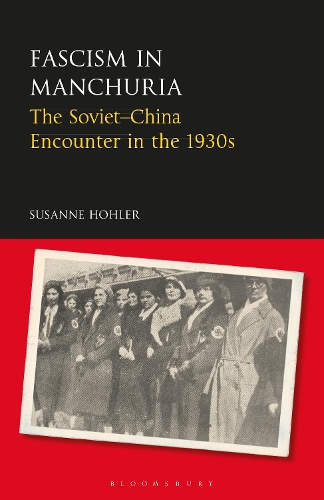
Fascism in Manchuria: The Soviet-China Encounter in the 1930s
(Paperback)
Publishing Details
Fascism in Manchuria: The Soviet-China Encounter in the 1930s
By (Author) Susanne Hohler
Bloomsbury Publishing PLC
Bloomsbury Academic
20th February 2020
United Kingdom
Classifications
Tertiary Education
Non Fiction
Military history
Social and cultural history
Development economics and emerging economies
Far-right political ideologies and movements
International relations
Political control and freedoms
Asian history
320.533095180903
Physical Properties
Paperback
272
Width 135mm, Height 216mm
322g
Description
The history of the Russian fascist movement in Harbin, Manchuria during the 1930s has become increasingly relevant to our understanding of modern Russia. As a railway junction and an important centre of the Jewish Diaspora, the city of Harbin became a focus of Russian emigration to Manchuria in the early 1930s, partly because of its proximity to the resource-rich Manchurian plains. In this multicultural and cosmopolitan setting the first Russian fascist groups were established. Based on an analysis of Russian civil society, Fascism in Manchuria sheds light on the impact of the newly-founded All-Russian Fascist Party on the Russian emigre community, employing the concept of 'dark' civil society. Suzanne Hohler demonstrates how fascist involvement in local civil society increasingly determined public opinion, examining the power of the military organizations, the symbols and style of the fascist organizations, the cult of the leader as well as the 'public-relations' activities of the fascist organizations and of the so-called Russian Club. In this context the book provides not only insights into the history and ideology of the far eastern branch of Russian fascism and its transnational connections, but also touches upon a variety of issues of daily life in the city, issues such as education, drug addiction and hooliganism among Russian youth, the local YMCA, the famous Kaspe kidnapping and the rise of anti-Semitism. Fascist literature from Harbin is being republished in today's Russia, and Fascism in Manchuria provides an important historical context for the thinking and motives which drive the Russian right."
Author Bio
Suzanne Hohler is Assistant Professor of History at Heidelburg University, Germany. She has won several scholarships for her work on this period and is an expert on Russian fascism.
